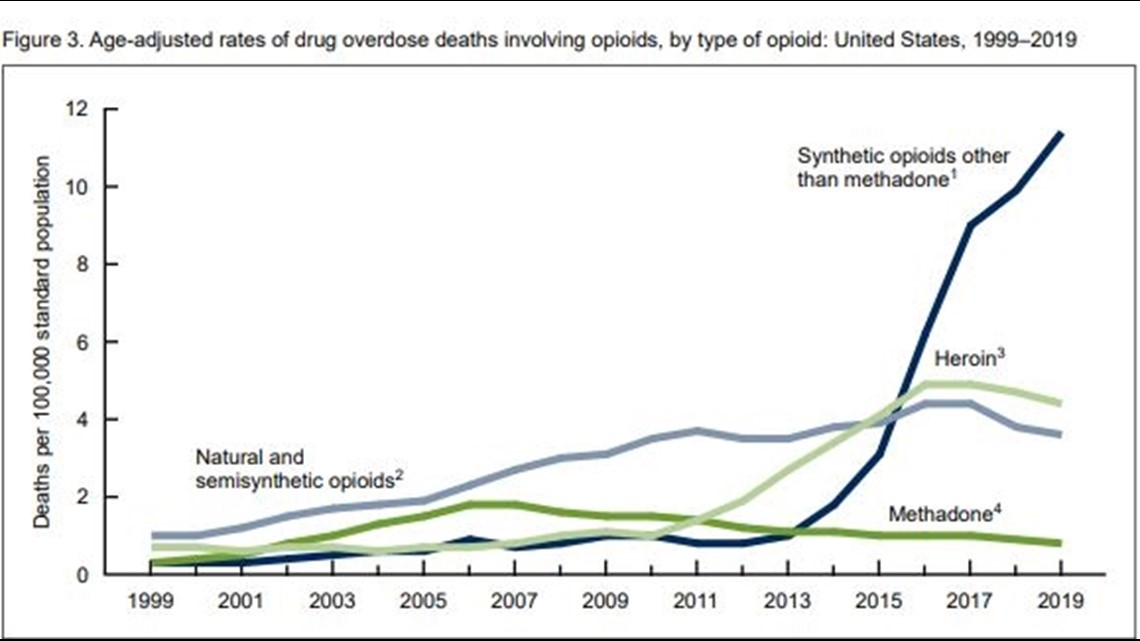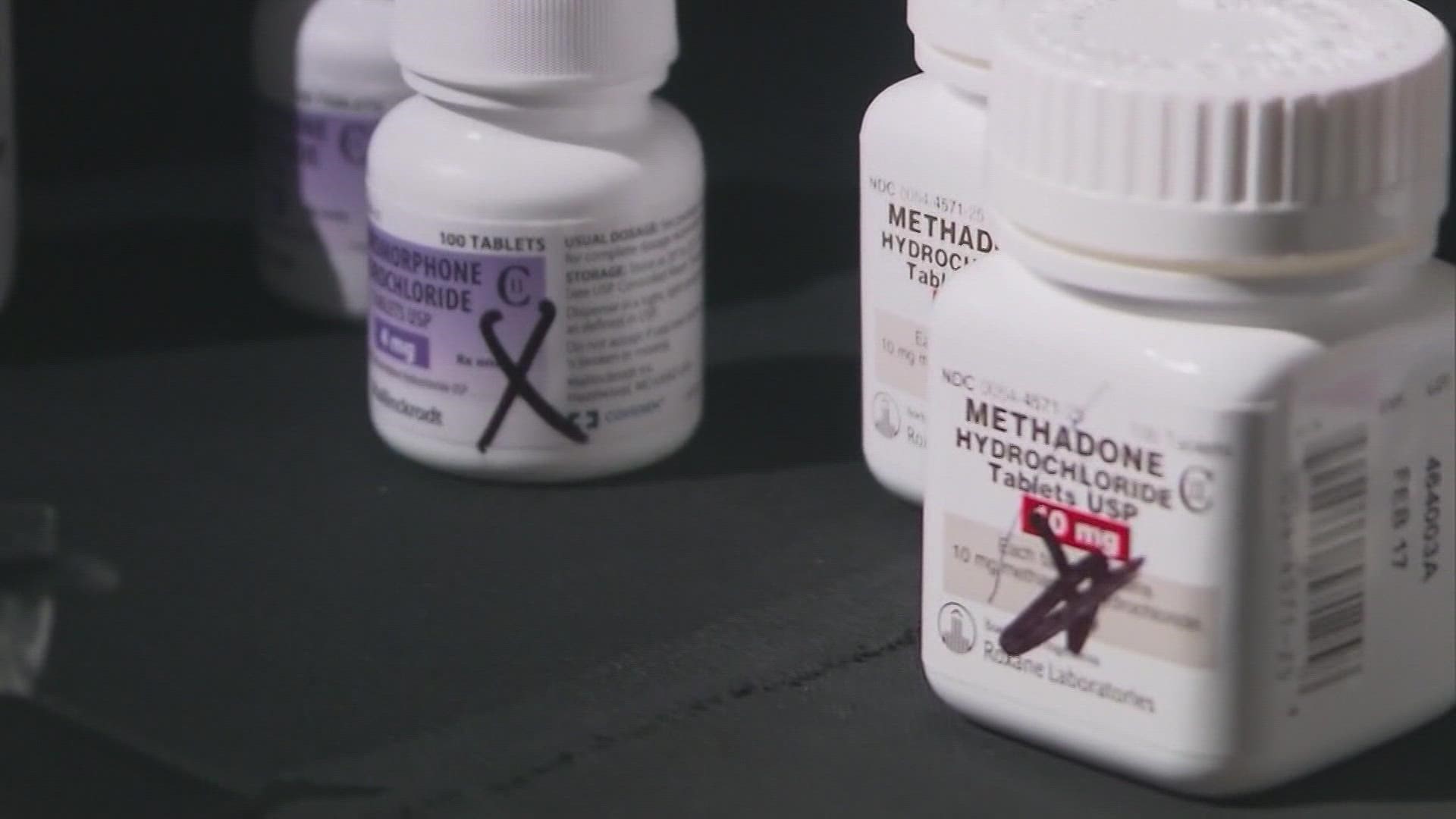KNOXVILLE, Tenn. — Starting on July 1, 2022, it'll be a little easier to access the life-saving Naloxone in the state of Tennessee.
The drug, better known as "Narcan," has the potential to reverse the effects of an overdose from opioids including heroin, fentanyl and prescription opioid medications.
Governor Bill Lee signed a law that will require doctors to offer a prescription of Narcan to patients who have also been prescribed opiates.
"When prescribing an opioid to a patient, a healthcare prescriber shall offer a prescription for naloxone hydrochloride or another drug approved by the United States Food and Drug Administration for the complete or partial reversal of an opioid overdose event," HB2228 says.
Certain qualifications need to be met by the patient in order to access it.
- The prescription dosage for the patient is higher than 50 more morphine milligram equivalents or,
- The patient presents with an increased risk for overdose, including a history of overdose or,
- The patient is at high risk of witnessing an opioid overdose event.
Karen Pershing, the executive director at the Metro Drug Coalition, said the law was signed into action at the right time.
"It's important for people to understand that the drugs out there today are so much more deadly and dangerous than what we've seen many, many years," Pershing said.
She said the fight against substance abuse disorder largely relies on Naloxone.
"Just having that conversation between the physician and their patient, I think will create a lot of awareness and will save a lot of lives," Pershing said.
It increases awareness and accessibility to life-saving medication. However, according to the Centers for Disease Control and Prevention, prescription opioids are not the most commonly misused drug.


Synthetic opioids are the cause of overdose deaths at three times the rate of prescription drugs.
"Most of the overdoses that are occurring in our community and in the United States are really lean towards synthetic opioids, which are really illicit fentanyl products that are on the street are mixed with street drugs," said Tyler Dougherty, who is a pharmacist at Clinton Drug Store.
He thinks the law, while effective to some degree, is only a snippet of the full picture of Tennessee's overdose epidemic.
"It's good that physicians and prescribers will be offering Naloxone to these patients," Dougherty said. "But, a lot of the problem that's currently driving a lot of overdoses is really street use."
Pershing said more is being done to combat street drug use on a local level. She said a group called the Regional Overdose Prevention Specialists are teaching folks in the community how to administer naloxone.
"They try to find those high-risk individuals that may be good at using street drugs, or not going to a physician and getting prescribed opioids, and who are most at risk for an overdose and train them in the field and provide them Naloxone kits," Pershing said.
The Metro Drug Coalition encourages anyone who is battling substance abuse disorder to reach out for help.
"We have a person on staff, and their position is to help people navigate the treatment system," Pershing said.
Find out more about the Metro Drug Coalition on their website.

